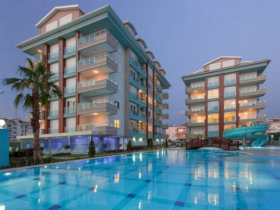The biggest bonuses from new sanctions against Russian non-ferrous metals can be received by China, or more precisely, by the Shanghai Stock Exchange.
The imposed sanctions do not pose critical risks for Russian metallurgical companies that have reoriented sales from the United States and Europe to China and other Asian countries, especially Norilsk Nickel – it has been expanding its exports to them for a long time, says Khazanov. According to his information, Norilsk Nickel itself has not carried out the sale of non-ferrous metals through the CME and LME; this is handled by foreign traders.
“But it is LME that will suffer from the sanctions: in March 2024, the share of domestic aluminum in its warehouses reached 91%, copper – 62%, nickel – 36%,” Khazanov recalls. – A reduction in their influx into the warehouses of the London Exchange could lead to a rise in prices, problems for its clients and increased influence of the Shanghai Futures Exchange, which is seeking to displace the LME as the world center for trading non-ferrous metals – it is exploring the possibility of launching transactions for the purchase and sale of futures on nickel intended for international use, and will try to take advantage of the situation to lure LME partners to itself.” Ultimately, Russian metallurgical producers will strengthen their presence in Asian markets, thereby compensating for their departure from the United States and Europe, Khazanov believes.
Basically, trade in Russian non-ferrous metals has already been reoriented to Asian countries, adds Sergei Suverov, investment strategist of Arikapital Management Company and associate professor at the Financial University. Therefore, according to him, the exports of UC Rusal and Norilsk Nickel to the USA and Great Britain were insignificant compared to the scale of business of these companies. “The current sanctions are, in a certain sense, a shot in the foot, since volumes of Russian metal will move from Western exchanges to Shanghai, which will thus strengthen its position,” he notes. — Since the London Exchange has quite large reserves of Russian metals, sanctions are not very good news for the LME, because with their departure its position in exchange trading will weaken. The Shanghai Exchange will do everything it can to develop its infrastructure, and I think it will have the technical capabilities to do so.”
The consequences of sanctions for Russian producers are difficult to assess: it will depend on a combination of a possible discount on metal from Russia, which could reduce their revenue, and rising prices for metals due to their falling out of supply chains, which could partially or fully compensate for this discount, the senior believes BCS World of Investments analyst Dmitry Kazakov. Kazakov reminds that traders who used authorized LME warehouses have now lost this opportunity and from now on will be able to receive Russian metal bypassing these warehouses. “LME and its clients will suffer to some extent,” the expert says. “The exchange will need to at some point replace Russian metal with another in order to maintain a sufficient level of reserves in the exchange’s warehouses.”










